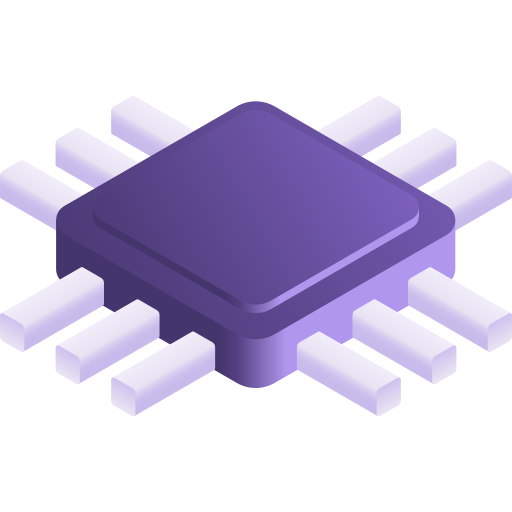Havatra
- 2 Posts
- 13 Comments

 2·2 days ago
2·2 days agoThey only recently made it mandatory for three visa types, but since introduced in October 2016, it’s always been an optional field when applying for an ESTA.
Edit:
Not that not providing your social media handle will benefit you, of course.
Do you often (if at all) run into conflicts with the
..alias? I can’t think of any case on top of my head, but it feels a bit sketchy. The more than 2 dots however I imagine is pretty safe.

 3·3 days ago
3·3 days agoDepends on the level of technology you’re willing to go to:
Smart phones today you’re probably all out of luck, whether it’s Google’s Android, Huawei’s HarmonyOS, or Apple’s iOS. Same with any desktop PC.
Dumb phones without internet connectivity, like the Mudita Pure, can get you pretty far, but as you’re making calls and sending texts through your telecall provider, your provider might use that data for training purposes still.For other technological devices, like fitness trackers, TVs, cars, fridges, or any IoT device really, that somehow either connects to internet or syncs to a device with such capability (your phone) in order to phone home, you’re likely out of luck.
Dumb devices, like mechanical timepieces, monitors, and “normal refridgerators” can get you pretty far, but remember that your purchases of these things, along with all the metadata of those purchases, might also be tracked and trained on.

 351·6 days ago
351·6 days agoAs biber@feddit.org pointed out, this 1000-fold increase is compared to barium titanate by itself, not to standard silicium solutions. However, it’s still worth pointing out:
Panels made with this technology could be much more efficient and require less space than current silicon-based solar cells,
(…)
The material is also simpler to manufacture and more durable, as it does not require special packaging.

 4·7 days ago
4·7 days agoSame here. I personally feel like in a lot of grand orchestra music one can clearly hear the lossy compression. I recently switched to Deezer, and I might be biased, but I felt like a fair share (not all) of songs were more pleasing to listen to. One example that pops into my head is this song: Chiral Carcass Culling, by Ludvig Forssell. I don’t have a side-by-side comparison, but it feels like the lossless version simply has more depth (is less flat), where I can hear much more of the nuances of the background.

 12·7 days ago
12·7 days agoI have a slight feeling that they will require “proof” of no existing social media profile: Either you give them something, anything, or they will try and search the web for any account that matches your identity.
And of course, if your cooperation is unsatisfactory, they reserve the right to deny you entry.

 2·12 days ago
2·12 days agoThe big one for me is
grep/ripgrep. I’m a dev, so there are often times I need to search the contents of files to figure out where something obscure is mentioned. This is also possible on Windows, but as with most things on Windows, it’s slow.The second mention-worthy thing is, oftentimes in conjunction with
grep, is piping! It’s so enjoyable for me to find the files/content, pipe it to anything (sometimes throughxargsand/ortee), so that I can replace the text en-masse withsed, remove all junk files that match a certain parameter withrm, and generally automatically act upon something that I don’t have to manually look for.Although I’m a dev mainly on Windows, I’ve installed WSL as a compromise, and quite often find myself using its bash to perform tasks like the ones mentioned above.
You’re an awesome admin, Demigodrick! The transparency, the hospitality, the constant positive engagement with the community! As long as you remain, this community will thrive, I’m sure of it ;)

Happy Birthday! :D Love the microsite - great choice of stats!
And a big cheers to the admins for the incredible efforts! 🥂

 5·16 days ago
5·16 days agoI’d say Linux Mint, ZorinOS, and Manjaro Linux are all viable options for Windows users who want an easy transition. Although I don’t think any distro will ever be considered a “plug-and-play” experience. There are varying degrees of user-friendliness, but if one wants user-friendliness like not having to do root/sudo actions even once, I think one might be better off with MacOS…? Though from what I’ve heard, the main reason Windows users are looking towards Linux and not MacOS is exactly because of the ability to customize more than just the wallpaper (and also the entire boycott US movement).

 91·16 days ago
91·16 days agoI love the blunt title of “… for Windows 10 Exiles”, though I wonder if it will rub people the right or wrong way when reading it.
Now, don’t get me wrong, but all the hype around the so-called “apocalyptic” October 14 feels a little overblown.
I agree somewhat - the date itself is not that big of a deal, as it’s just a date that Microsoft has set in order to have a spesific time to keep as a reference for when they have their last support push for Windows 10:
Windows 10 will reach the end of support on October 14, 2025. At this point technical assistance, feature updates and security updates will no longer be provided.
This doesn’t mean that it will immediately be defunct or a serious security risk. But from this point on, the more time that passes, the higher is the likelyhood of security holes being found (and used), that will not be patched.
Windows 11 has proven itself to have - a - lot - of - anti-features. Being forced to choose between having to deal with those, or change the entire system which you’ve grown so very used to, can be a rather difficult decision for many. KDE trying to ease the transition I think is appreciated by many who find themselves stuck in this choice. Or at least to give Linux a try.

 18·2 months ago
18·2 months agoIt’s impressive to see that they save in the money they spend on licenses this quickly! It’s a little bit of work to transfer the current systems and get used to a different system, but it’s very doable it seems (albeit over years of work), as well as economically attractive. I hope this inspires the rest of the country!



Depends on the conditions, I’d say. If you have an area that has low oxygen and high saline concentration, one could potentially preserve large parts of the carcass. A big challenge though is the substances brought by the carcass itself, like enzymes and bacteria that are not directly exposed to the oxygen-deficient saline-abundant water, which can thrive and remain active for a long period of time. However, if this carcass sinks to incredible depths, where the pressure is really high, temperature is a constant 4 degrees, very low concentration of scavengers or thriving organisms, and potentially sinks a bit into the sediment for a long time, you’ll essentially get
pickle juicefossil fuel.